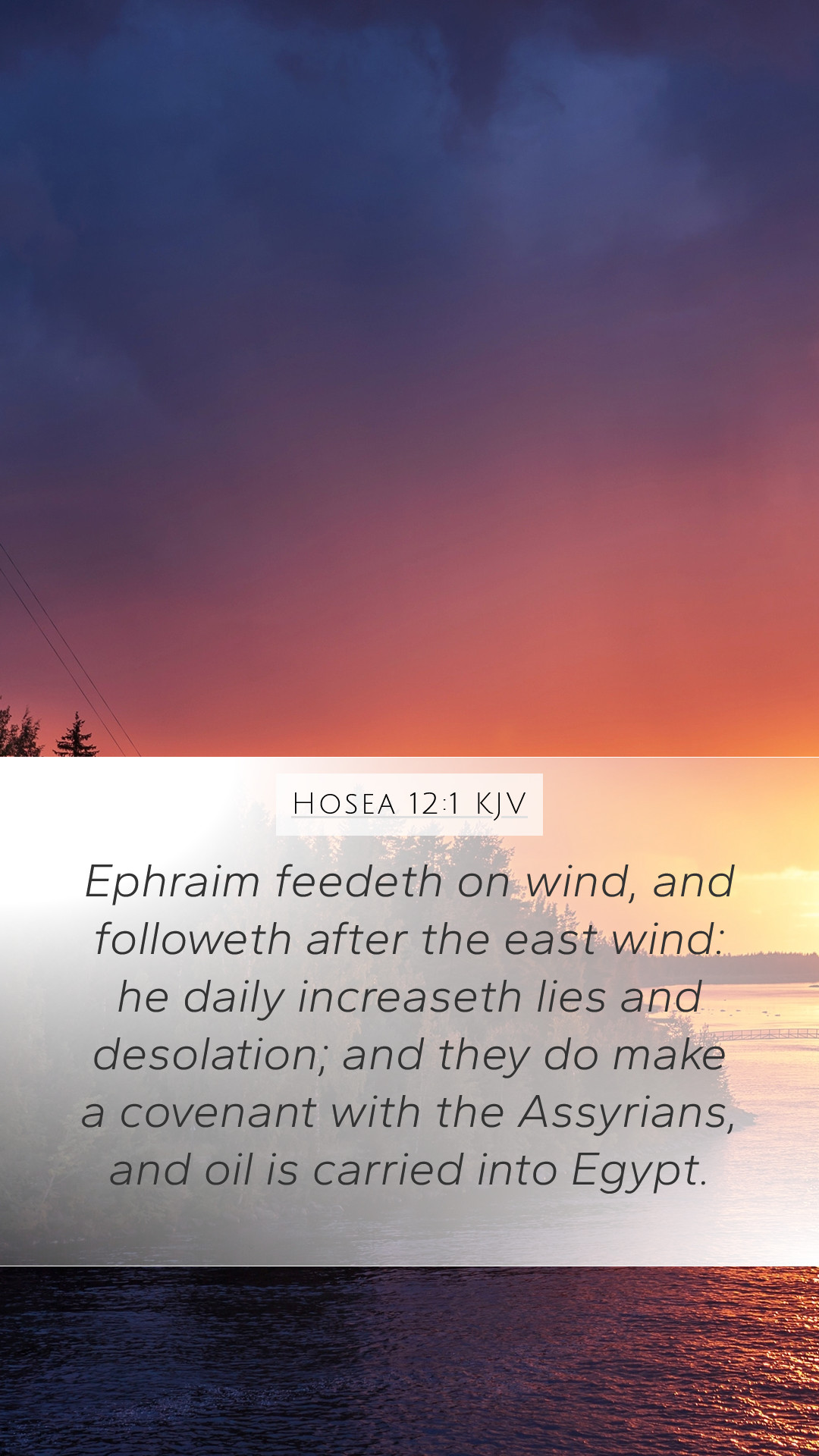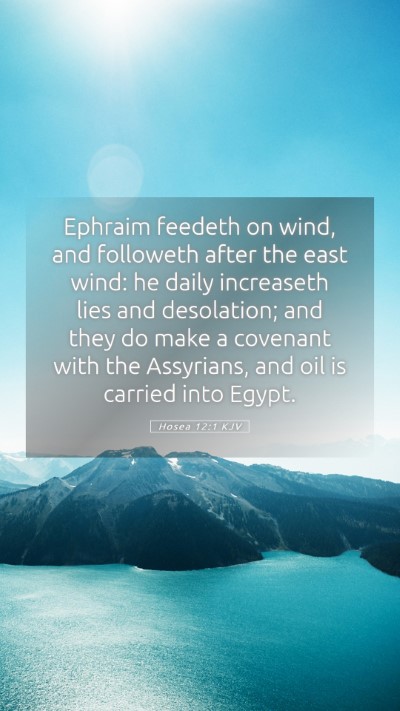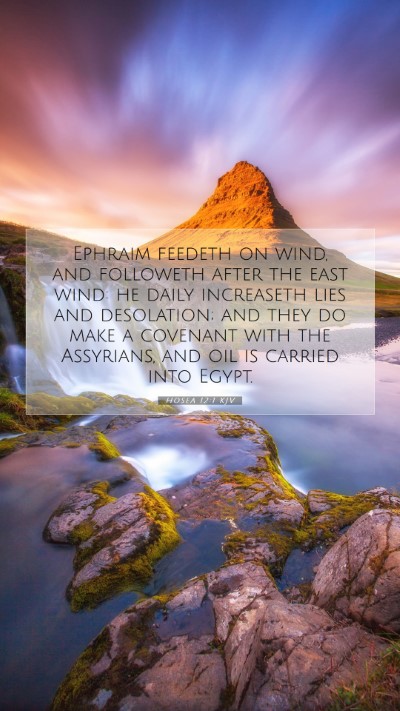Old Testament
Genesis Exodus Leviticus Numbers Deuteronomy Joshua Judges Ruth 1 Samuel 2 Samuel 1 Kings 2 Kings 1 Chronicles 2 Chronicles Ezra Nehemiah Esther Job Psalms Proverbs Ecclesiastes Song of Solomon Isaiah Jeremiah Lamentations Ezekiel Daniel Hosea Joel Amos Obadiah Jonah Micah Nahum Habakkuk Zephaniah Haggai Zechariah MalachiHosea 12:1 Meaning
What is the meaning of Hosea 12:1?
Ephraim feedeth on wind, and followeth after the east wind: he daily increaseth lies and desolation; and they do make a covenant with the Assyrians, and oil is carried into Egypt.
Hosea 12:1 Bible Verse Meaning
Understanding Hosea 12:1
The verse Hosea 12:1 states: "Ephraim feeds on the wind, and follows after the east wind; he daily increases lies and desolation; and they do make a covenant with the Assyrians, and oil is carried into Egypt."
This verse presents a rich tapestry of meanings and implications regarding the behavior of Ephraim, representative of the Northern Kingdom of Israel. In the context of scriptural analysis, it offers profound insights into the themes of idolatry, deception, and reliance on foreign powers rather than on God.
Scripture Analysis: Key Themes
- Ephraim's Spiritual Condition: Ephraim exemplifies a people consumed with vain pursuits—symbolized by "feeding on the wind." This imagery illustrates the futility of their actions, paralleling the emptiness of falsehoods they propagate.
- Deception and Desolation: The phrase "daily increases lies and desolation" emphasizes the continuous nature of their transgressions and highlights the inevitable consequence of turning away from divine truth.
- Reliance on Foreign Alliances: By making covenants with Assyria and Egypt, Ephraim shows a lack of trust in God. This seeking of security in worldly alliances reflects the overarching theme of disobedience seen throughout the Book of Hosea.
Bible Verse Meaning and Interpretations
Matthew Henry elaborates on how Ephraim's actions signify a community that is not merely erring but has made a willful choice to pursue avenues contrary to God's commandments. The choice to ally with Assyria, a powerful but ultimately untrustworthy entity, is indicative of misplaced reliance.
Albert Barnes also emphasizes the futility of pursuing worldly power. He explains that "feeding on the wind" conveys the idea of chasing after that which provides no sustenance, leading only to further spiritual poverty.
Adam Clarke points out that this passage can be interpreted as a warning against the dangers of compromise and the pursuit of earthly gains. When a nation or individual seeks help from anything other than divine assistance, they enter a path that leads to destruction.
Applying Hosea 12:1 to Daily Life
Understanding the implications of this verse invites reflection on our personal choices regarding reliance and trust. It challenges believers to examine where they find their security and whether it aligns with God's will.
In Bible study groups or online Bible study settings, Hosea 12:1 serves as a profound teaching tool discussing the heart of Israel and the relevance of this lesson today.
Historical Context of the Verse
During the time of Hosea, Israel faced external threats and internal moral decline. The choice to form alliances with Assyria and Egypt not only led to a preservation of the state temporarily but also fostered an environment of idolatry and deviation from true worship.
Cross References
- Isaiah 28:15 - References the covenant with death and hell reflective of false security.
- Hosea 10:13 - Discusses the sowing of wickedness and reaping calamity.
- 2 Kings 17:3 - Chronicles Israel's alliances with foreign nations leading to their downfall.
- Isaiah 31:1 - Warns against relying on horses and chariots instead of the Lord.
- Jeremiah 2:36 - Highlights the futility of seeking assistance from neighboring nations.
Conclusion
In summary, Hosea 12:1 provides a deep well of meaning for those exploring Bible verse interpretations and seeking a nuanced understanding of Scripture. This verse not only highlights the mistakes of ancient Israel but serves as a timeless caution against placing trust in human alliances over a steadfast reliance on God's promises.
This exploration encourages ongoing reflection in our Bible study insights and highlights the vital importance of grounded theology when interpreting the word of God.


